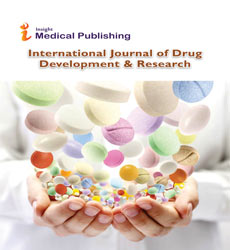Abstract
Comparison of Efficacy and Tolerability of Vitamin C as add on Therapy to the oral hypoglycaemic agent in newly diagnosed Type 2 Diabetes Mellitus
Background: Diabetes mellitus is one of the most common metabolic disorders that causes microvascular and macro vascular complications. No study has ever examined the effect of vitamin C with glibenclamide on fasting (FBS) and postprandial blood sugar (PPBS) as well as glycosylated hemoglobin (HbA1c) in the treatment of type 2 diabetes mellitus (DM). Objective: The goal was to examine the effect of oral vitamin C with glibenclamide on FBS, PPBS in type 2 DM.. Methods: Ninety newly diagnosed Type 2 DM patients participated in a Randomized, open lable prospective study for 8-weeks. Newly diagnosed Type 2 DM patients were randomly divided into three groups .First group received glibenclamide 5mg orally,second group received glibenclamide 5mg with vitamin C 1g orally and third group received glibenclamide 5mg with vitamin C 2g orally .All groups received drugs daily for 8 weeks. Investigations like Fasting blood sugar (FBS), Post prandial blood sugar(PPBS) were measured before and after vitamin C consumption and the results were analyzed. Results: A significant decrease in PPBS level was seen in both the group supplemented with 1g and 2 g of vitamin C. However percentage of reduction in Postprandial blood sugar level is more in group receiving vitamin C 2g(15.4% ,P<0.001) than group receiving 1g (9.6% ,P<0.007). Conclusions: Our result showed that oral supplementation of vitamin C 2gm with glibenclamide reduces PPBS level. Hence, supplementation of vitamin C along with oral hypoglycemic drug helps in maintaining good glycaemic control in type 2 DM patients.
Author(s): Dr Rekha Nayaka M. R, Dr. Bhagya M.Sattigeri
Abstract | Full-Text | PDF
Share this

International Journal of Drug Development and Research peer review process verified at publons
Abstracted/Indexed in
- Google Scholar
- Genamics JournalSeek
- China National Knowledge Infrastructure (CNKI)
- CiteFactor
- Scimago
- Directory of Research Journal Indexing (DRJI)
- WorldCat
- Publons
- MIAR
- ResearchGate
- University Grants Commission
- Secret Search Engine Labs
- Euro Pub
Open Access Journals
- Aquaculture & Veterinary Science
- Chemistry & Chemical Sciences
- Clinical Sciences
- Engineering
- General Science
- Genetics & Molecular Biology
- Health Care & Nursing
- Immunology & Microbiology
- Materials Science
- Mathematics & Physics
- Medical Sciences
- Neurology & Psychiatry
- Oncology & Cancer Science
- Pharmaceutical Sciences


